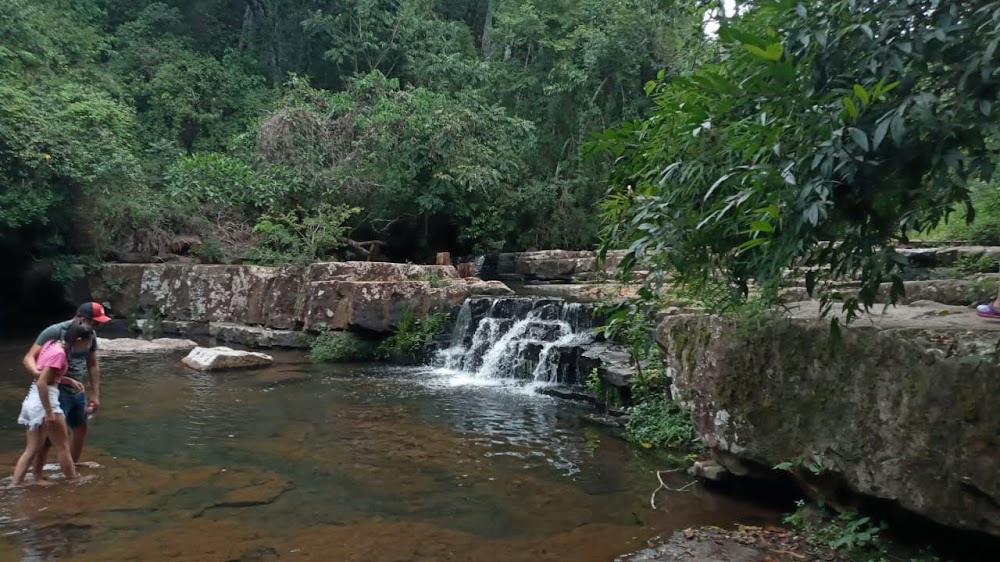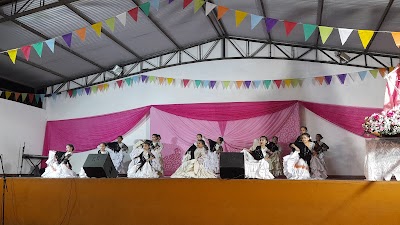La Colmena (La Colmena)
Overview
La Colmena, nestled in the picturesque Paraguarí Department of Paraguay, boasts a unique and captivating history. The town's name, which translates to "The Beehive," perfectly encapsulates the vibrant energy and warmth of its community.
A Rich History of Agricultural Development
In the early 20th century, a wave of Japanese immigrants arrived in Paraguay, driven by the desire for a better life. They settled in the fertile lands of the Paraguarí Department, playing a pivotal role in transforming La Colmena into a thriving agricultural hub. What began as a modest settlement soon blossomed, thanks to the hard work and dedication of these immigrants, who reshaped the landscape with their innovative farming techniques.
Crops and Innovations
The region's fertile soil and favorable climate provided ideal conditions for cultivating a diverse array of crops. The settlers introduced advanced farming methods from Japan, significantly enhancing productivity and crop quality. Among the first successful harvests were rice, a variety of vegetables, and an assortment of fruits. These agricultural innovations not only attracted interest from neighboring areas but also contributed to the region's economic growth.
Building a Community
As the population flourished, the settlers constructed essential infrastructure, including homes, schools, and healthcare facilities. The architectural landscape of La Colmena reflects a harmonious blend of Japanese and Paraguayan styles, with traditional wooden houses featuring tiled roofs standing alongside classic Paraguayan brick buildings, creating a distinctive skyline.
Cultural Exchange and Unity
To foster a strong sense of community, the settlers organized social and cultural events that celebrated both Japanese and Paraguayan traditions. Annual festivals became cherished highlights, showcasing traditional dances, music, and culinary delights. These gatherings not only promoted cultural exchange but also reinforced unity among the residents. The settlers' commitment to preserving their heritage while integrating into Paraguayan society contributed to La Colmena's flourishing spirit.
Commitment to Education
Education was a top priority for the settlers, who established schools to provide their children with a comprehensive education. They maintained high academic standards, emphasizing bilingualism and multicultural understanding. Over time, La Colmena's educational institutions gained a reputation for excellence, attracting students from across Paraguay seeking quality education.
Cooperative Success
The community's success was bolstered by a strong emphasis on cooperative work. Farmers formed cooperatives to streamline the sale and distribution of their produce, enabling them to compete in larger markets while ensuring fair prices for their goods. This collaborative approach not only strengthened the local economy but also fostered a spirit of mutual support among the residents.
Modern La Colmena
Today, La Colmena proudly retains its agricultural roots while diversifying into various economic activities, with tourism emerging as a significant industry. Visitors are drawn to the town's scenic beauty, cultural events, and historical sites. The rise of private enterprises such as restaurants, shops, and guesthouses has further enhanced the local economy, catering to the needs of tourists.
In conclusion, La Colmena stands as a testament to the determination, resilience, and collaborative spirit of its founders and inhabitants. It is a vibrant community where tradition and progress coexist in harmony, and visitors are always welcomed with open arms.





